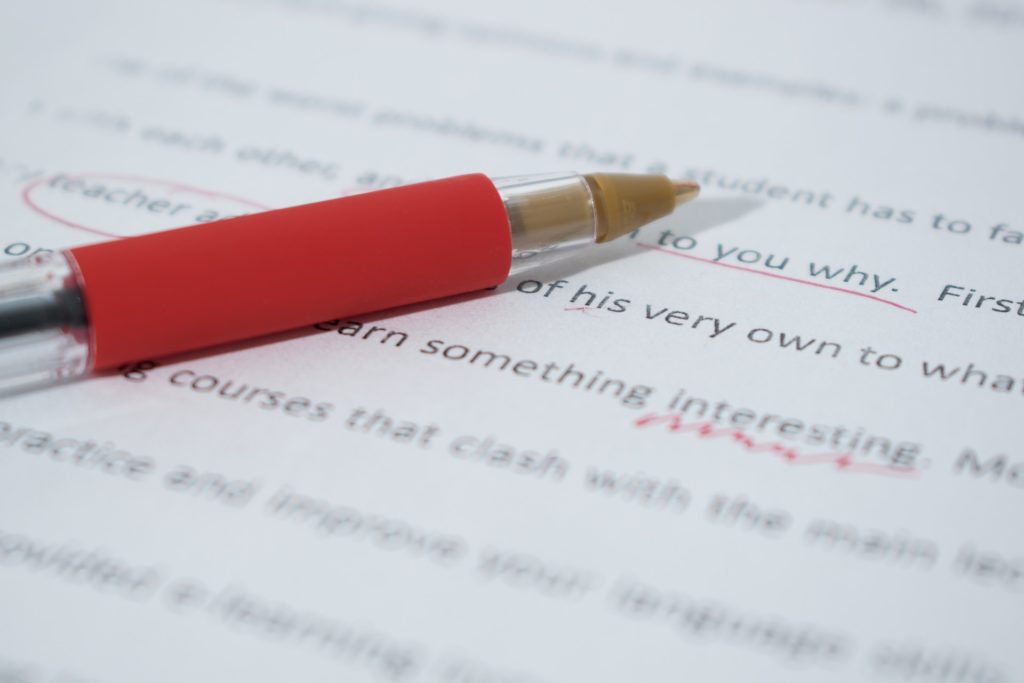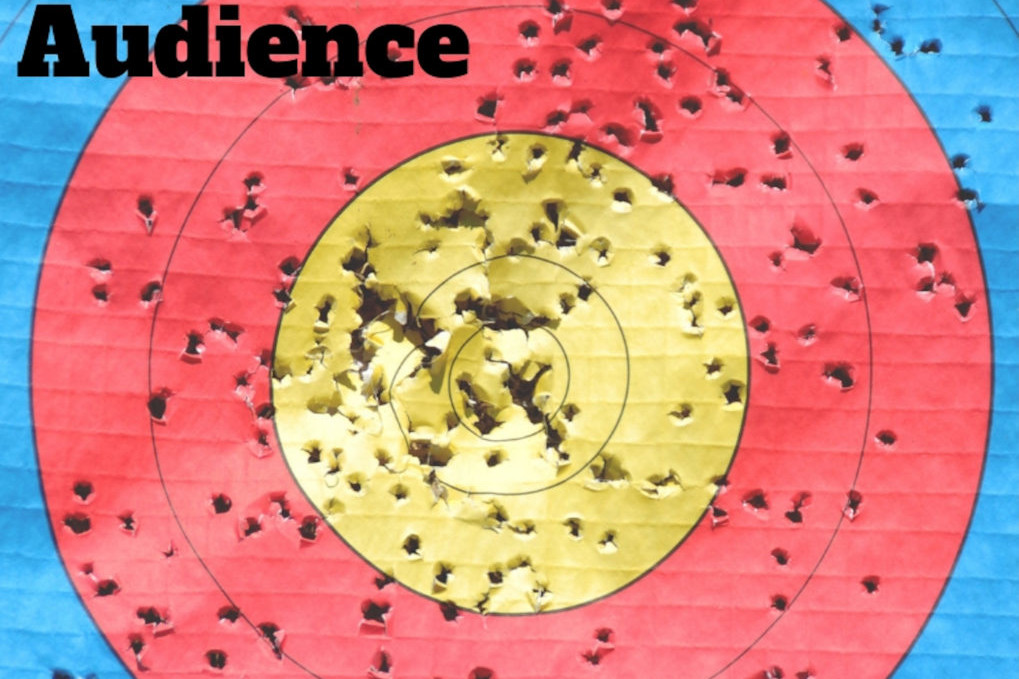Who doesn’t love to spot a glaring typo? Sure, it’s fun to snicker when we see them on social media memes or roll our eyes when we get a typo-ridden text from a friend. But when those pesky errors make their way into our writing (or, worse yet, a client project), it’s no laughing matter. Common grammar errors can kill your business’s credibility.
In fact, “tiny” grammar errors have cost businesses some big money—millions of dollars in lawsuits and wasted time, budget, and resources on marketing collateral that’s unusable or corporate policies that must be rewritten because of their ambiguities.
And at the very least, poor grammar doesn’t say much about either party (the writer or the company who hired them) to potential customers if a business’s marketing materials are riddled with typos.

Entities of all kinds have been impacted by incorrect grammar—even the federal government. In 1872, President Ulysses S. Grant passed a tariff act in which “fruit plants, tropical, and semi-tropical for the purpose of propagation” were exempt from the tariff.
Somehow an extra comma was inserted, so the new law read “fruit, plants, tropical and semi-tropical…”. This error cost the federal government approximately $2 million (roughly $40 million in today’s dollars after adjusting for inflation).
Recent examples of small grammatical mistakes also cost millions. In 2014, three truck drivers employed by Maine-based Oakhurst Dairy sued for overtime pay—all because of the infamous, and often contentious, Oxford comma (or, rather, a misplaced comma) in a state employment law.
The lawsuit ruled in favor of the drivers; the dairy had to pay $10 million in overtime pay. Similarly, a misplaced comma cost aircraft construction company Lockheed Martin $70 million. A comma in the price update formula for their “Hercules” military transport aircraft was shifted by one character.
Welsh engineering firm Taylor and Sons were impacted when a British business registry announced the firm had closed its doors, when, in fact, it was Taylor & Son (singular) that ceased operations.
Over 250 employees lost their jobs. Taylor and Sons’ former co-owner sued, but the damage had already been done. And Canadian cable TV company Rogers Communications was involved in a dispute with Bell Aliant, an Atlantic Canada phone company, all because of a misplaced comma.
The argument focused on the phone company’s efforts to terminate a contract dictating the use of Rogers’ telephone poles; the dispute changed course because of a single comma placement in the 14-page contract.
Many of us are quick to point out others’ grammatical and mechanical gaffes on social media memes or when we see them on signage in real life, but when you think about it, you’ve probably forgotten many of the basic grammar and punctuation rules from grade school.
If you use your way with words to generate income, sharpen up those spelling and grammar skills you thought you left behind in junior high language arts class. Writers with a solid grasp of those mechanics are in surprisingly short supply. Be one who stands out!
Below is a quick refresher on word usage and punctuation rules, as well as a few tips for self-editing your work.
Commonly Misused and/or Misspelled Words
1. “Your” vs. “You’re”
These words are misused so often, it’s almost comical—except that it’s not. If you’re unsure when to use which form of the word, remember this rule: If you could say “you are” instead, “you’re” is correct. Otherwise, use “your.”
Examples:
- You’re the best one for the job (You are the best one for the job).
- Your grades are very impressive!
2. “Too,” “to,” and “two”
If you could say “also”, then use “too” (prefaced with a comma); “to” is a verb—going to a place. “Two,” of course, is the number.
- Incorrect: He wanted to go, too. (He wanted to go, also).
- Correct: He wanted to go to the bank. (Writing “He wanted to go to” sounds like the rest of the sentence is missing).
3. “Affect” vs. “effect”
Affect is a verb; effect is a noun. Weather affected the outcome of the game. All-weather is the effect of various pressure systems in the atmosphere.
4. “Ensure” vs. “Insure”
To ensure is to guarantee. Insure is to protect.
Examples:
- We locked the gate to ensure the child’s safety.
- We want to insure our new car.
Example of Poor Grammar
 5. “Weather” vs. “whether”
5. “Weather” vs. “whether”
One is a natural phenomenon; the other can be used instead of “if..
Examples:
- The weather outside is frightful.
- Whether it’s pouring or not, take an umbrella.
6. “Loan” vs. “Lend”
A loan is a noun; lend is a verb. You take out a loan. You lend money to a friend.
7. “Lay” vs. “Lie”
We’re digging deep into our language arts textbooks to explain this one. Use lay when the direct object is being acted upon (such as “lay the book on the table”). Use lie when there is no direct object but the subject of the sentence is acting on its own, such as “He went to lie down.”
8. “There,” “Their,” and “They’re”
Many writers have trouble using contractions correctly. “There” is a place, “their” is a plural possessive pronoun (“their house”), and “they’re” is the contraction for “they are” (“They’re going to the game this weekend”).
9. “It’s” vs. “its”
Like the previous bullet point, “it’s” is a contraction of “it is”; the other is a plural possessive pronoun.
Examples:
- It’s going to rain. (It is going to rain).
- Nature takes care of its own.
10. Never use “irregardless”
Quite simply, it’s not a word. Use “regardless.”
Common Punctuation and Usage Mistakes
11. Commas
This little bit of punctuation is effective but grossly misunderstood and misused. In simplest terms, a comma is a brief pause in the flow of a sentence—a quick “breath,” if you will. You also use it to separate items in a sentence rather than using “and.”
- Incorrect: Primary colors are blue and red and yellow.
- Correct: Primary colors are blue, red, and yellow.
The Oxford comma has been debated at great length by grammarians for years. As already mentioned, companies have spent millions on lawsuits related to written policies and procedures in which the comma was missing, thus changing the meaning of the sentence. The Oxford comma is the piece of punctuation used after the final item in a list and prior to the words “and” or “or.”
Example:
- Primary colors are blue, red, and yellow, and many elementary school classrooms are decorated in this palette. (Opting not to use a comma after “yellow” is also technically correct if using an AP Style).
Some style guides insist the Oxford comma be used; others don’t. For business writers working on client projects, it’s critical that you stick to the client’s preferred method.
12. The Comma Splice
A comma splice occurs when a comma is used instead of a period. It creates one run-on sentence rather than two separate statements.
- Incorrect: I don’t know the difference, it was never explained to me.
- Correct: I don’t know the difference. It was never explained to me.
13. Colon Usage
A colon is used after a complete sentence to begin a word, phrase, list, or quotation.
Examples:
- Some of my favorite foods are these three items: pizza, tacos, and spaghetti.
- As President Harry Truman said: “The buck stops here.”
14. Multiple Exclamation Points!!
There are very few instances where you need to use one exclamation point in business or copywriting (unless you’re citing a direct quote), let alone more than one. It’s great that you’re excited, but don’t overdo it!
15. USING ALL CAPS
There’s no need to use all caps unless you’re blatantly yelling at the reader or you want to emphasize a point.
16. Too Many Adverbs
Minimize the use of words ending in “-ly”; adverbs can add some color to a sentence, but overusing them takes away from your message. Avoid overusing “really” and “very,” as they are “empty” adverbs—choose a stronger noun or verb instead.
17. Sentence Fragments
A fragment is an incomplete sentence that does not have an independent clause. It may be missing a subject, verb, or both, and as a result, it’s missing the context of the rest of the paragraph.
- Incorrect: We gave our neighbors a welcome gift. Even though we didn’t know their likes or dislikes.
- Correct: Even though we didn’t know their likes and dislikes, we gave our neighbors a welcome gift.
18. Passive Voice
Passive voice occurs when the object at of the sentence is at the beginning rather than the end. Unless you’re writing a research or other academic paper, passive voice is frowned upon in most writing styles. It is often a sign of weak or dull writing. The opposite of passive voice is active voice – where the subject performs the action directly.
Example:
- Passive: Because she needed milk, she went to the store.
- Active: She went to the store because she needed milk.
The action is at the beginning of the second example, which is more engaging to the reader.
19. Run-on Sentences
This occurs when two main clauses are used with no punctuation.
- Incorrect: There’s no way of knowing we’ll have to see what happens.
- Correct: There’s no way of knowing. We’ll have to see what happens.
20. Vague Pronouns
Pronouns replace nouns, but if you’re using a vague pronoun, it’s easy to confuse the reader.
Example:
- When Jennifer and her mother get together, she always has a good time. (Who has the good time—Jennifer or her mother?)
- Correct: Jennifer and her mother always have a good time when they get together.
21. Wordiness
A close cousin of run-on sentences, it’s easy to cram as many words into a sentence as possible. But to do this is to run the risk of losing readers. Short, crisp sentences with strong word choice tend to be more effective longer sentences overflowing with flowery, superfluous language.
Example:
- Strict adherence to the regulations of the establishment would be much appreciated by management, staff, and guests.
- Better: Everyone would appreciate it if all guests followed the hotel’s rules.
How to Check Your Work
- Read it aloud. As you’re writing, the flow of the words make perfect sense in your mind, but sometimes when you see them on the screen or on a piece of paper, that may not be the case. Reading your words out loud can help you identify areas of the piece that are just not working, as well as any errors in word usage, mechanics, or other weak spots.
- Print it out. Old school methods still work well for certain tasks, and self-editing is one of them. Print the piece, grab your trusty red pen, and read through the document. You’ll find reading something in hard copy is much different from reading it on the screen—spelling mistakes, redundancies, and other typos are much easier to notice.
- Have someone else read it. You know what you want to say, but will your intended message be clear to the reader? Give the piece to a trusted, impartial third party and encourage them to ask questions, point out weak or unclear areas, and of course, any spelling, grammar, or punctuation errors.
- Use an online grammar tool. Don’t dismiss spell check’s effectiveness, and sites like Grammarly and Scribens are free online tools that can help you turn in clean, correct copy.
What are some of the most glaring typos you’ve noticed lately? What are your tips for catching mistakes in your own work?



